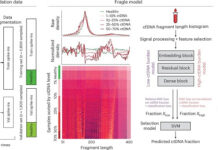A comprehensive study conducted at AIIMS Delhi has revealed that the after-effects of COVID-19 can persist for years, with significant respiratory and systemic symptoms. Of the 1,426 patients registered at the long COVID clinic since 2020, 231 were followed up for over two years, providing insights into the prolonged health challenges faced by survivors.
Key Findings
- Respiratory Complications:
- 36.4% experienced persistent breathlessness (dyspnoea).
- 48.1% showed impaired spirometry (difficulty in inhaling/exhaling).
- 70.7% had impaired lung diffusion, making it difficult for their lungs to efficiently exchange gases.
- At-Risk Groups:
- Women, the elderly, smokers, and those who experienced severe infections were more prone to long-term complications.
- Patients infected during the Delta variant wave were more likely to report prolonged respiratory issues.
- Other Symptoms:
Patients frequently reported fatigue, sleep disturbances, psychiatric changes, and dietary shifts, highlighting the systemic nature of long COVID.
Many long COVID survivors, like Ankan Jaiswal and Savitri Devi, face persistent issues such as breathlessness, cognitive fog, and worsened symptoms due to pollution, while others, like Mithilesh Kumar, struggle with basic physical activities. Led by Dr. Anant Mohan, the AIIMS Delhi study is one of the first in low- and middle-income countries to examine long-term lung damage through detailed tests and follow-ups over two years.
Implications and Recommendations
As reported by indianexpress, the findings highlight the importance of early medical intervention and regular follow-ups for long COVID patients to address symptoms and prevent complications. Breathing exercises and lifestyle modifications are recommended for managing respiratory impairments.
By mapping the long-term effects of COVID-19, this study aims to guide healthcare strategies for managing long COVID, offering hope for better treatment protocols and improved quality of life for affected individuals.
























